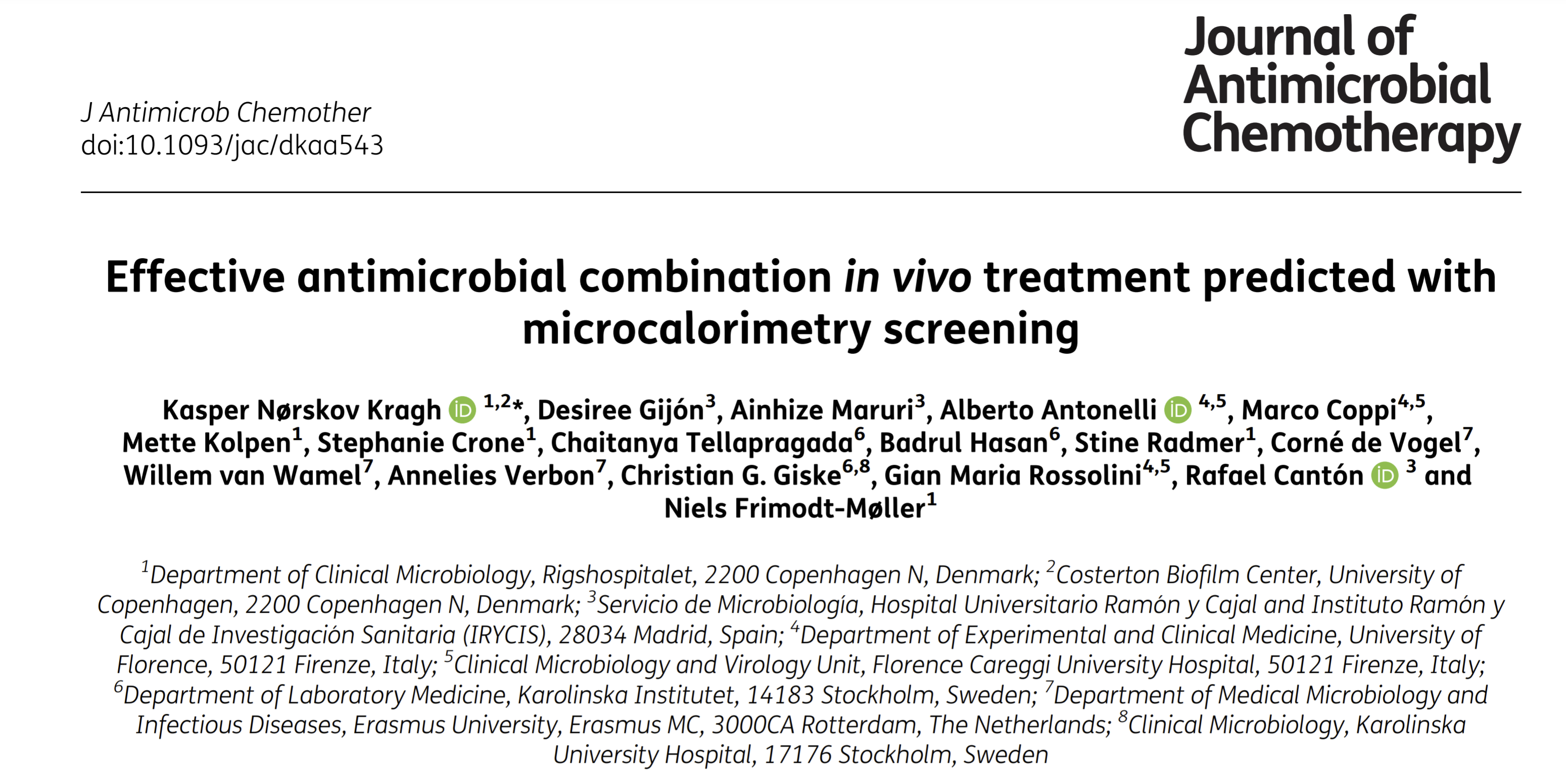Symcel calScreener™ real-time metabolic analysis predicts how well antibiotics will work in-vivo
– New data suggest old antibiotics used in new combinations can be effective against drug resistant infections.
(STOCKHOLM) Symcel— a company providing real-time metabolic measurements for cell culture with their product calScreener™ ̶ was recently involved in a Europewide collaboration with internationally recognised experts to test the effectiveness of measuring microbial metabolism in response to antibiotic treatment. The study reported that metabolism data from the calScreener™ more accurately and quickly predicted clinical outcomes when compared to currently used methods.
The study published in the Journal of Antimicrobial Chemotherapy tested mixtures of clinically used antibiotics and found that certain combinations were more effective at killing antibiotic resistant microorganisms than the compounds used on their own. This finding suggests that antibiotics currently on hospital shelves that we thought were ineffective, may work when used in combination with other seemingly ineffective compounds.
“A bacterium that is resistant to antibiotic A or antibiotic B when used alone, can in some cases be sensitive when A and B are used in combination. It may be because the bacterium’s defense against one antibiotic can create an opening for the action of the second,” explained lead author Dr. Kasper Kragh from the University of Copenhagen.
The ability to predict how an antibiotic will work in patients is essential to administering effective treatments. The checkerboard which is the current method for assessing antibiotic combinations does not accurately predict how well antibiotics will work. Despite using the same growth conditions and media, metabolism measurements were significantly better at predicting whether the treatment would be effective in an animal model.
Accurate in-vivo predictions is an important step forward and could make it easier and cheaper to develop new antibiotics in the future. However, the most immediate application is to find antibiotic combinations that have never been tried and find new ways of treating resistant infections.
Symcel CEO, Jesper Ericsson explained, “antibiotic resistance is an acute global threat to human health. There is a large unmet need for our technology that can accurately predict the in-vivo outcome of antibiotic treatment from in-vitro metabolic measurements in bacteria. We see with great optimism on these latest results that can accelerate the development of novel drugs at reduced risk and cost, with a better bridge between results in the lab dish and in animal models. Importantly, this further validates our internal development programs for rapid diagnostics of antibiotic treatments using the calScreener.”
ENDS
For more information, please contact Jesper Ericsson, CEO (jesper.ericsson@symcel.com)
Visit http://www.symcel.com/ and follow Symcel on LinkedIn and Twitter for our latest news.
Citation
Kasper Nørskov Kragh, Desiree Gijón, Ainhize Maruri, Alberto Antonelli, Marco Coppi, Mette Kolpen, Stephanie Crone, Chaitanya Tellapragada, Badrul Hasan, Stine Radmer, Corné de Vogel, Willem van Wamel, Annelies Verbon, Christian G Giske, Gian Maria Rossolini, Rafael Cantón, Niels Frimodt-Møller, Effective antimicrobial combination in vivo treatment predicted with microcalorimetry screening, Journal of Antimicrobial Chemotherapy, dkaa543, https://doi.org/10.1093/jac/dkaa543
About Symcel
Symcel is leading a new era in metabolic measurements for use in rapid diagnostics and improved therapies within infectious diseases. We provide a novel cell-based assay tool for real-time cellular metabolism measurements. Our solution is a fast, label-free phenotypic screening technology for direct measurements on cell behaviour and drug responses. Symcel was founded in 2004 by Dr. Dan Hallén and Prof. Ingemar Wadsö, leading authorities in bioactivity measurements. The current team at Symcel has extensive experience within the biotechnology industry and diagnostics.

H2020-SMEInst-2-2016-2017
This project has received funding from the European Union’s Horizon 2020 research and innovation program under grant agreement No 784514.
